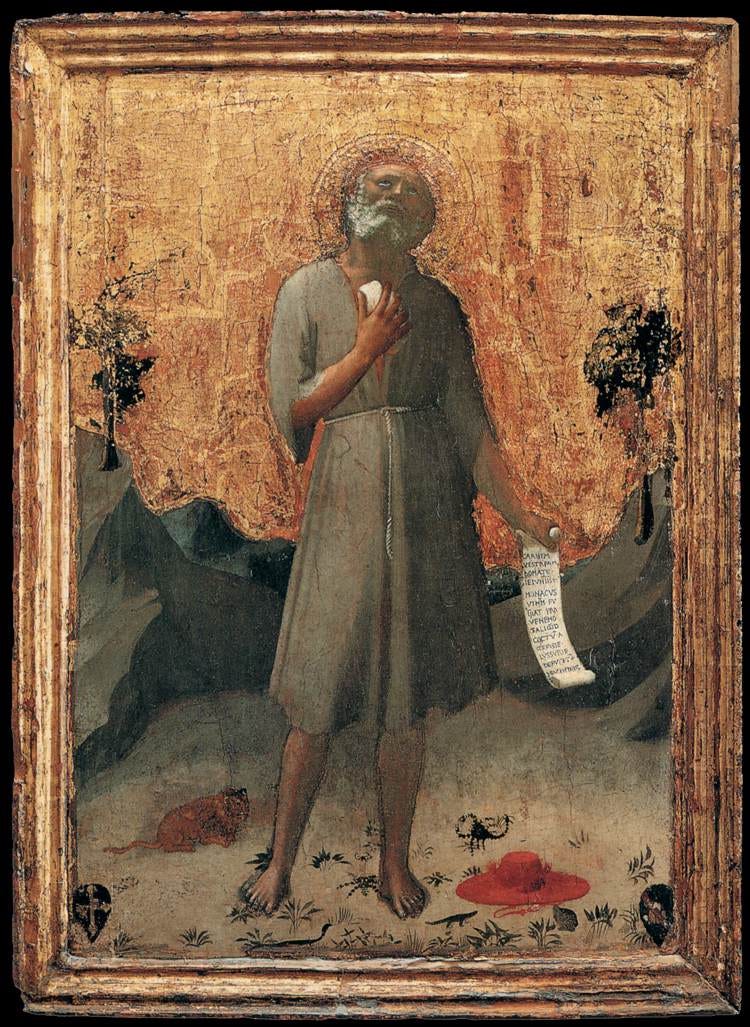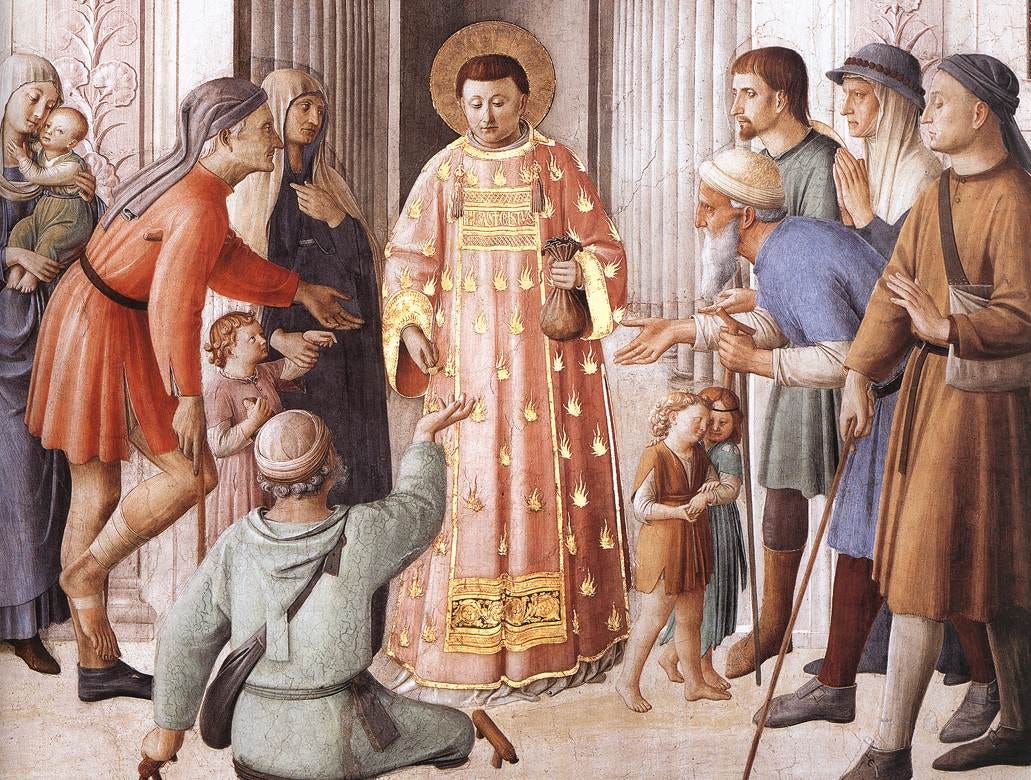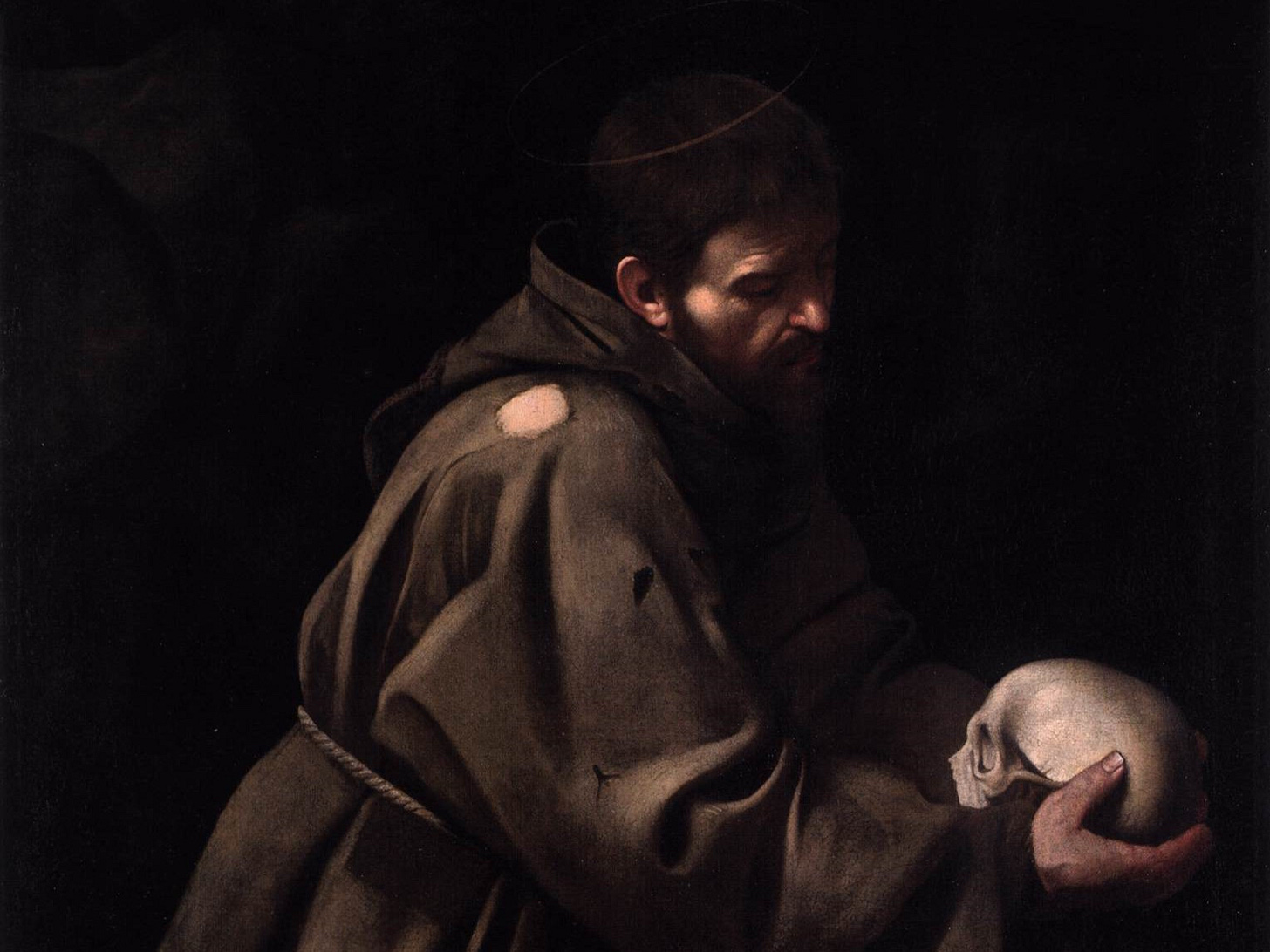Instruction on Lent
By IBP in Brazil - A non-exhaustive list of penances and works that can be done during Lent
Note from the translator: The original in portuguese here
but unless you shall do penance, you shall all likewise perish
Luke 13, 3
Lent is a time of penance. It is necessary to realize this.
Unfortunately, with the relaxation of ecclesiastical discipline, sacrifices ceased to be a significant part of Catholic life. One no longer fasts during all of Lent or most of it. The abstinence from meat still imposed on Catholics on Fridays and expressed in the Canonical Code can be commuted by another prayer or sacrifice, the fasts and abstinences on Ember days no longer exist in an obligatory way, etc. All that, which was part of Catholic life, has been greatly weakened, and the spirit of penance and reparation for our sins and those of others are in a state that leaves much to be desired. At the same time, many expressed the desire to be more clearly and profitably instructed in the Lenten penances.
Therefore, the faithful can find a non-exhaustive list of penances and works that can be done during Lent. In general, the faithful does not need to ask for advice or guidance to perform ordinary penances. For more extraordinary penances, it is highly advisable to seek the opinion of a priest or director of knowledge and prudence.
The genres of works traditionally presented to the faithful are three: fasting, almsgiving, and prayer.
Fast
Fasting, says the Church in her liturgy, represses vices, elevates the soul, increases virtues, and gives us great rewards (Preface to Lent).
The Code of Canon Law (1983) states:
Can. 1252 The law of abstinence binds those who have completed their fourteenth year. The law of fasting binds those who have attained their majority, until the beginning of their sixtieth year. Pastors of souls and parents are to ensure that even those who by reason of their age are not bound by the law of fasting and abstinence, are taught the true meaning of penance.
Fasting consists of one full meal and two smaller meals which, together, are less than a full meal. Pregnant women and breastfeeding mothers should avoid fasting, and they are even exempt when it is the day when the Church obliges the faithful to fast. Those who have heavy jobs should also be cautious about fasting. One does not fast on Sundays and feast days (Feasts of Saint Joseph and the Annunciation, for example).
Other similar works of physical mortification that are proposed to the faithful as penances are:
Eating more of what you don't like and less of your favorite things;
Eat normally at meals, but do not eat anything between breakfast and lunch, nor between lunch and dinner;
Delay meals by 15-30 minutes, if possible (this is not done if it will disrupt the family or work routine);
Do not drink liquids during meals and even between meals (if health permits);
Abstaining from lawful pleasures, such as listening to music, dessert, and sugar;
Get up 15-30 minutes earlier; not sleeping after lunch;
Dedicate yourself diligently to the needs of the household, such as washing the dishes, sweeping, helping in the garden, etc.;
Bear without complaint the cold or the heat;
Moderate the use of adornments and makeup;
Refrain from making any comments or expressing an opinion, even on lawful matters;
do not talk about yourself;
Pray on your knees for a longer time than you are used to;
do not waste time with superficialities;
Notably reduce the use of cell phones and the internet, using them only for what is necessary;
Study seriously, for a time already determined beforehand;
Alms
It is commendable to give alms to those who need help. Alms reach forgiveness for our faults. When giving alms, it is not necessary, nor should one, make a detailed investigation of the condition and honesty of the person asking, except when dealing with a large amount, because giving alms is not synonymous with entering into a business contract. It is a work of charity, not of justice, and therefore it does not need to be preceded by a great inquiry into the honesty of the person asking. As a general rule, it is better to give many small alms than a few large ones. It is also better to provide food or hygiene materials than money. However, it is necessary to recognize that sometimes a poor person needs money for something else and that, for privacy, he is not obliged to expose his personal problems. One is not obliged to give alms to anyone who shows sufficiently clear signs that he is asking for something using lies and falsehood. Other similar works are:
Lend promptly what is asked of us, without attachment;
Increase a little, if possible, during Lent, a material help that is given to someone or an institution on a regular basis;
Offer some reading, if the occasion presents itself that is pious to a person in need;
Take time to be of service to others (without expecting anything in return).
Console and encourage people who are discouraged in the practice of virtue;
Approach someone you dislike, and help him promptly;
Forgive that person against whom you hold a grudge (pray to ask for this grace);
Visit a sick person and/or a family member who needs it;
Prayer
Go to more masses throughout the week;
Add another Rosary throughout the day, or at least a few decades;
Rectify intentions before acting, acting not to be esteemed or recognized but to please God;
Offering to God the slander received, humiliation, and failures;
don't complain;
Make the Via Sacra on Fridays;
Visit the Blessed Sacrament for 10-15 minutes every day, or for a few days in the week, and on your knees;
Confess soon after some extreme fall;
Obey promptly;
Speak well of a person you are jealous of, and pray for him;
Be faithful to daily mental prayer;
Add another 5-10 minutes to mental prayer;
Do 10-15 minutes of spiritual reading every day at a fixed time (after breakfast, or before bed, for example);
Examine your conscience before going to sleep, or even at two times during the day (after lunch: what I did until lunch; before dinner: what I did between lunch and dinner);
Make a diligent examination of conscience and go to confession;
Read about some point in the catechism or Catholic doctrine that you are ignorant of or know you know poorly;
Read a biography of a saint (avoid overly summarized and simplified biographies, and even more so sentimental biographies);
Examine what one's dominant defect is and make serious efforts to overcome it;
Offer some sacrifice for the souls in purgatory;
Learn about the ceremonies of Holy Week to attend them with greater devotion.
As many other possible penances can be seen elsewhere and inspired by God's love, God will certainly reward them.
It is also necessary to avoid pusillanimity. A young man or woman aged 18 or over is in a position to be, in fact, more generous and to demand more than a child or elderly person.
In all penances, one must act with discretion but without fear that they will necessarily be visible to others. There is no problem, for example, for a family man or other family member to fast in a visible way to other household members. Just let it be done without clamor and in simplicity and for the love of God, and God will bless what is done.
Avoid, however, all originality and excess. Imitate what is done by pious and sensible people, avoiding all singularity.





